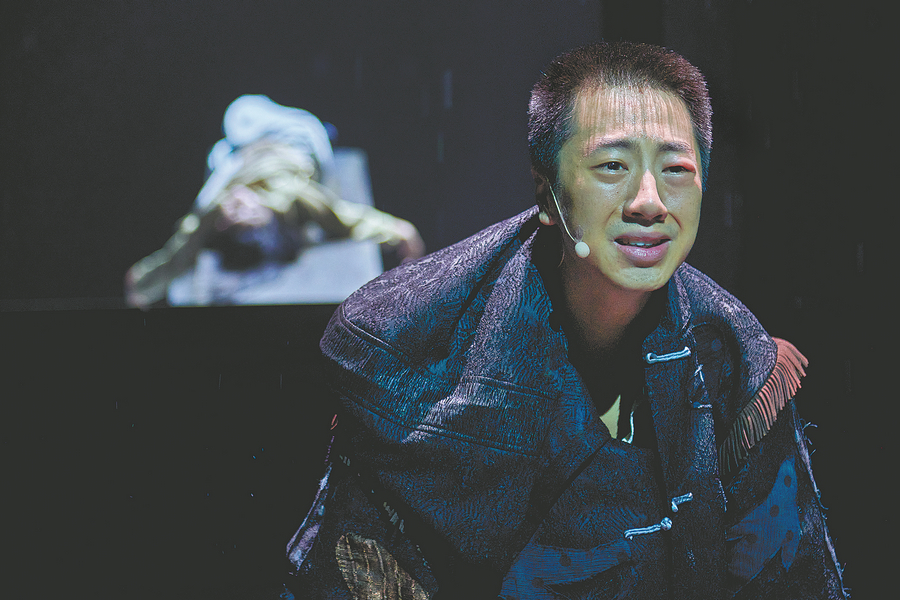A camel, a cage and a Chinese classic


In the play, Xiangzi arrives in Peking full of his dreams and passion. But he takes heavy blows from the harsh reality of life — he loses the first rickshaw he buys, and sells the second so that he can bury his wife.
Xiangzi is initially reluctant to sell the second rickshaw to save his wife, who is dying after suffering complications during childbirth. He only does so after she dies so that she can have a proper burial.
"You may find Xiangzi ignorant and his choices dumb, but when you think about it, you will find people like him around you all the time. He is just an ordinary person," says Wang. "He may think slowly, but what's on his mind is the same as everyone else. We may mock him, but how can we be so sure that we are not like him?"
But more tragedy ensues. Xiangzi goes on to lose the love of his life, Xiaofuzi, a woman forced into prostitution and who hangs herself in desperation. With this final blow, the man loses all hope for life and becomes an alienated creature like the robot camel, says He.
The play starts with the ending of the book, when Xiangzi is a lazy and unscrupulous man with no honor. The story then unfolds to present how, as a young man, he fails in his pursuit of a better life.
"It's always hard playing the character whose name is in the title of the play," says Wang. "I want to portray a multidimensional Xiangzi, not just a stupid man who knows nothing but hard work."
Director He started the series of "modern interpretations of classics of Chinese literature" in 2017, when he directed The Savage Land, a play created by Cao Yu in 1937.


















